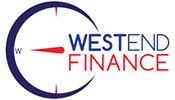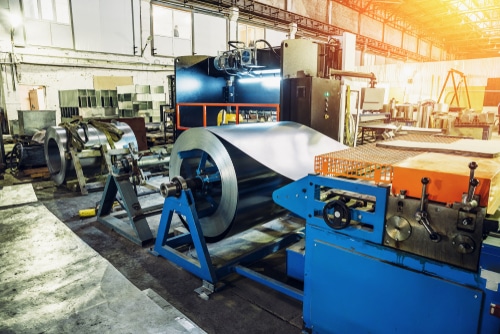Can I Use the Equipment I Buy as Security for a Loan? Answer Explained
Regardless of their size, many companies may need help to purchase equipment to run their operations. Fortunately, a business loan may be the right solution.
Equipment finance is a funding option that can give you enough money to purchase machinery for your business. However, there are several subtypes that you should be aware of to determine if it really suits your goals.
What Equipment Can I Buy with This Loan?
Depending on the option you choose and the lender you are working with, you can use an equipment finance solution to purchase various types of tools for your business, including:
- Heavy machinery for various industries, such as farm, manufacturing, construction, and agriculture
- Industrial kitchen equipment
- Vehicles, such as vans, car fleets, or forklift trucks (these loans are granted as commercial or business vehicle finance)
- Medical and scientific equipment
- Technology
Can I Use My Equipment as Security?
Generally, the financier can use the equipment you buy as a “security” or collateral against the loan. In other words, if you fail to make the monthly repayments, the lender can take ownership of the funded asset.
Equipment finance solutions take care of the initial outlay, but you securitise the amount you receive against the good itself. That’s why anything you buy could be repossessed if you don’t repay the debt.
However, there are several types of equipment finance, and they can all be different and have different conditions. Check them out below!
Types of Equipment Finance
When it comes to equipment finance, you can use a loan to buy or lease the vehicles or machinery you need. Based on that, this funding solution is divided into four types: chattel mortgage, commercial hire purchase (CHP), finance lease, and operating lease.
Chattel Mortgage
Also known as a “secured loan agreement” or just a “commercial loan,” a chattel mortgage is a fixed-term solution that allows you to obtain financing to purchase your business equipment.
If you choose this option, you must use the asset you buy as collateral against the loan. However, under chattel mortgages, the equipment is yours unless you can’t repay the entire debt when the loan term ends.
A chattel mortgage can be very beneficial for all types of businesses, especially those that need to buy high-value equipment with a medium or long useful life. In addition, it offers some tax advantages to borrowers (before making a decision based on a tax deduction, seek your own independent tax advice to make sure it fits your needs.)
However, you should keep in mind that there are some cons associated with a chattel mortgage. First, this type of financing is not flexible.
If you want to upgrade to equipment, you must pay off your current business loan and apply for a new chattel mortgage to get more funds. In this case, you must pay an early termination fee.
Moreover, you also can’t use the equipment you buy with a chattel mortgage until you pay off the entire debt at the end of the loan term.
Commercial Hire Purchase (CHP)
Under a commercial hire purchase (CHP), considered a “tripartite” agreement between the lender, the equipment seller, and the borrower, the financier buys the asset you need. Then, you can buy it by making instalment payments over a set period.
Generally, you must pay an initial deposit and monthly repayments if you apply for a commercial hire purchase. Once you pay all the debt at the end of the loan term, the equipment’s ownership is transferred to you.
A commercial hire purchase offers some advantages for business owners, including:
- Its purchase agreement’s conditions can be adjusted to your objectives, needs, and cash flow.
- At the end of the loan, the asset is yours.
- You can claim a tax benefit for the equipment’s depreciation.
However, a commercial hire purchase can also have some disadvantages. For this type of equipment finance, for example, you must make a deposit. In addition, you are responsible for the asset’s maintenance during the life of the loan. If it’s damaged or becomes obsolete, you must dispose of it.
Finance Lease
Also known as a capital lease, it enables the lender to purchase the equipment directly from the seller. However, you can rent it for a set period in exchange for regular lease payments with or without a balloon payment at the end.
During the lease period, you are responsible for the equipment’s maintenance, but you don’t own it. When it ends, you can return the asset to the lender, make an offer to buy it, or rent it out for another period.
Whether you need medical or office equipment, a finance lease can offer these advantages:
- No deposit required
- You can buy the asset at the end of the period
- Medium and long-term agreement options to better distribute the asset’s cost
However, this type of financing has limited flexibility, and you must cover all related costs that may arise during the lease period.
Operating Lease
An operating lease, also known as a “rental agreement,” refers to a short or medium-term financing option with maximum flexibility. If you choose this alternative, the lender buys the equipment on your behalf, and you can rent it in exchange for regular payments.
However, an operating lease does not allow you to purchase the equipment at the end of the term. Instead, you must return it to the financier. These are some of its advantages:
- You can upgrade your equipment without spending a fortune.
- Operating lease payments are often tax deductible.
- You don’t have to record the purchase on your balance sheet.
Can I Get a Business Loan That Suits My Business’ Cash Flow?
Yes, you can! Whether you choose one of the options listed here or prefer to find another, there’s the perfect equipment loan for you and your business. You only have to seek help from an expert to find the one that gives you the funds you need while protecting your finances.
Final Thoughts
As you can see, there are different types of asset finance if you need to buy equipment.
In all of them, whether you own it from the beginning or not, the asset you buy is used as collateral, meaning it can be repossessed if you don’t make the monthly repayments. However, each option has its benefits.
You can also find unsecured business loans if you don’t want to put down a good as security, but these options may have higher interest rates.
Do you need help getting the best business finance solution? Are you looking for an unsecured business loan? Don’t hesitate to contact us! Our experts can help you find the option you need!
Meta Description: When looking for financing for business machinery, you might need a security. Could it be the equipment itself? Find the answer here!



Leave A Comment